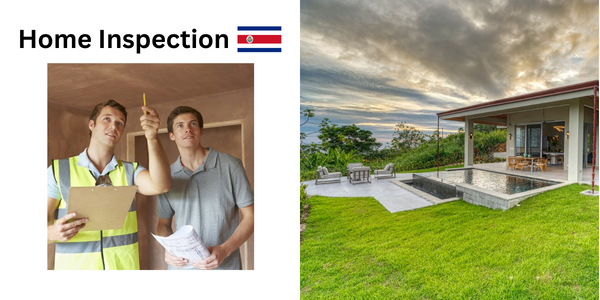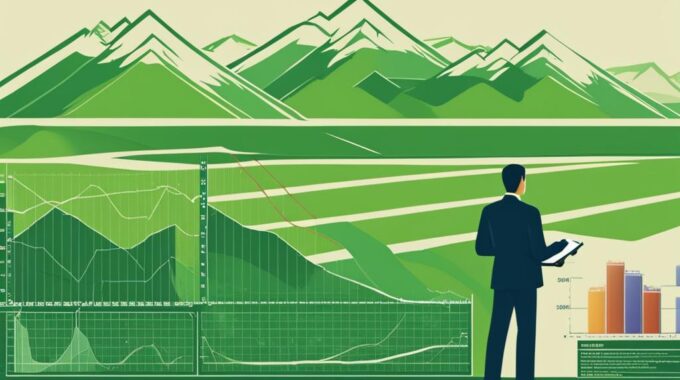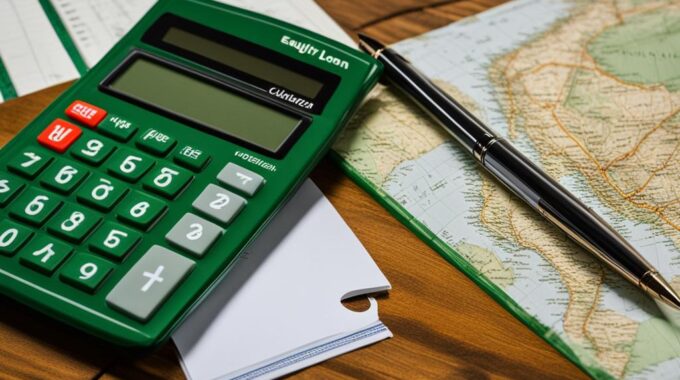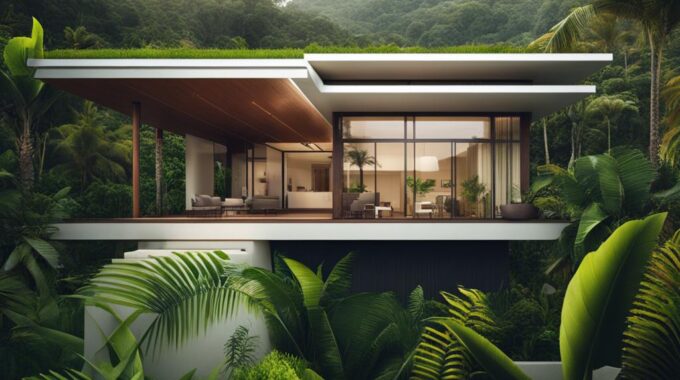Economically thriving and brimming with natural beauty, Costa Rica offers landowners and investors exciting avenues…

The Vital Role of Home Inspections for Mortgaging a Costa Rica Home
Home inspections are an essential part of the home-purchasing process in Costa Rica. Whether it’s a newly built home or an older one that has been remodeled, a professional inspection of the house can help ensure that you have made a well-informed decision. You can learn more about what to look for during an inspection and why this step is important.
Employing a Qualified Home Inspector
In Costa Rica, there are a lot of people advertising as home inspectors. However, no license is necessary for this. Many people would provide this service, but the level of expertise of the Inspector and the thoroughness of the examination completed vary greatly. A prospective home buyer should thoroughly investigate the background and credentials of a home inspector before hiring their services. The satisfaction of the Home Inspector’s other clients with the work and services rendered should also be investigated during this inspection. A certified home inspector must be knowledgeable about all aspects of home building, focusing on foundation inspection, roof inspection, and electrical and plumbing installation, and plumbing.

What to Look for in a Home Inspection Report
A home inspection report includes a visual inspection of the property, from the roof to the foundation and everything in between. This includes electrical, plumbing, safety, and structural components. The inspector will also look for signs of pests or damage from moisture or water penetration. The report will then outline any issues found and their potential cost to repair or replace, so you can make an informed decision about purchasing the home and assess your risk accordingly. To prevent flooding during the “Wet Season,” drainage systems surrounding the property are also critical to inspect.

Building regulations and governmental control
A construction code outlines the minimal building criteria for Costa Rica because of its location in a seismically active area. The typical building materials are reinforced concrete foundations, cement block walls, and clay tile or corrugated metal roofs. To get a building permit, the Building Plans must be certified by an Architect member of the Costa Rica College of Engineers and Architects. It is optional for the Building Plans to be created by an architect. Practically speaking, government oversight stops after the municipal building permit is issued. An architect may oversee the building process or be left in the care of the builder and the builder’s foreman, or “Maestro de Obras.” In Costa Rica, trade training is not required, and most are learned “on the job.” Municipalities only ever evaluate residential building projects after they are finished. Depending on how personally involved the current owner was in constructing their home, they might have little firsthand experience with the structure’s condition or potential flaws. Also, you’ll need a water letter which you’ll be able to learn about here if you don’t mind.

The Physical Characteristics of the Property
When you hire a home inspector in Costa Rica, they will physically inspect the property and look for any signs of structural damage or insufficient engineering that could affect the safety or livability of the property. This could include checking for structural weaknesses in walls or foundations, assessing roof wear, verifying that doors and windows have been properly installed, and looking into underground sewers, water systems, and electrical wiring. The inspector can also evaluate physical defects related to painted surfaces or carpeting.

Technical Evaluation of Infrastructure Quality and Reliability.
The inspector should also consider technical aspects of the property, such as electricity and telecommunications (internet, TV cable access), water and sewage pipes, sewage treatment facilities, and other amenities like air conditioning and lights. The assessment of these items should include their quality, condition, and reliability. If any of these essential household components are not functioning correctly or have known issues, they should be noted to inform the buyer’s future decisions. In general, it is necessary to have all infrastructure evaluated before purchase to ensure generations of safe occupation have been possible.
Conclusion
The Home Inspection from a reputable source is a crucial step in the due diligence process leading up to the private mortgage, in addition to having a lawyer review and report on the status of the registered property title.
What is a private mortgage?
Private mortgages are loans made available from non-bank sources. Private lenders are more flexible than banks and give you more options.
Who can get a private mortgage in Costa Rica?
Private mortgages can be taken out in Costa Rica by anyone with collateral, no matter what country they are from.
Why do people get private mortgages?
Private mortgages often have more straightforward requirements, faster funding, and flexible loan terms. They are a good option for people needing money fast.
How much can I borrow from a private mortgage loan in Costa Rica?
The average loan amount from a private lender is about 45% of the property’s value.
How much does interest on a private mortgage in Costa Rica usually cost?
With a high loan-to-value (LTV) ratio, the interest rates on private mortgages can be about 12% to 18%.
How long do you have to pay back a private mortgage in Costa Rica?
Private mortgages often have shorter payback times (1-3 years) than conventional mortgages (20-30 years).
How do you go about getting a private mortgage?
Because you are using your home as collateral, the application process for a private mortgage might differ from lender to lender. But most of the time, you must fill out an application form, show proof of income, and maybe even your credit history. There may be fewer rules for private lenders than for traditional banks.
How long does it take to hear back about an application for a private mortgage in Costa Rica?
Most private mortgages can be approved in as little as ten days, while traditional bank loans take 6 to 9 months or longer.
Contact us for more information, or fill out a loan request now!
Need Residency status in Costa Rica? – Click HERE.
Looking for Real Estate? – Click HERE.
Want to invest? – Click HERE.
Article by Glenn Tellier (Founder of CRIE and Grupo Gap)





This Post Has 0 Comments